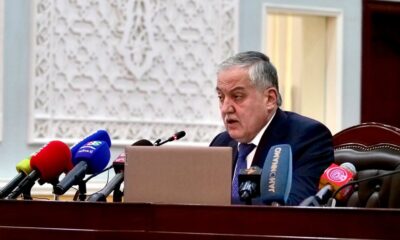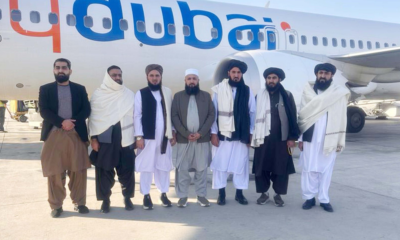Latest News
U.S. efforts in Afghanistan a tactical success, but strategic failure: Milley
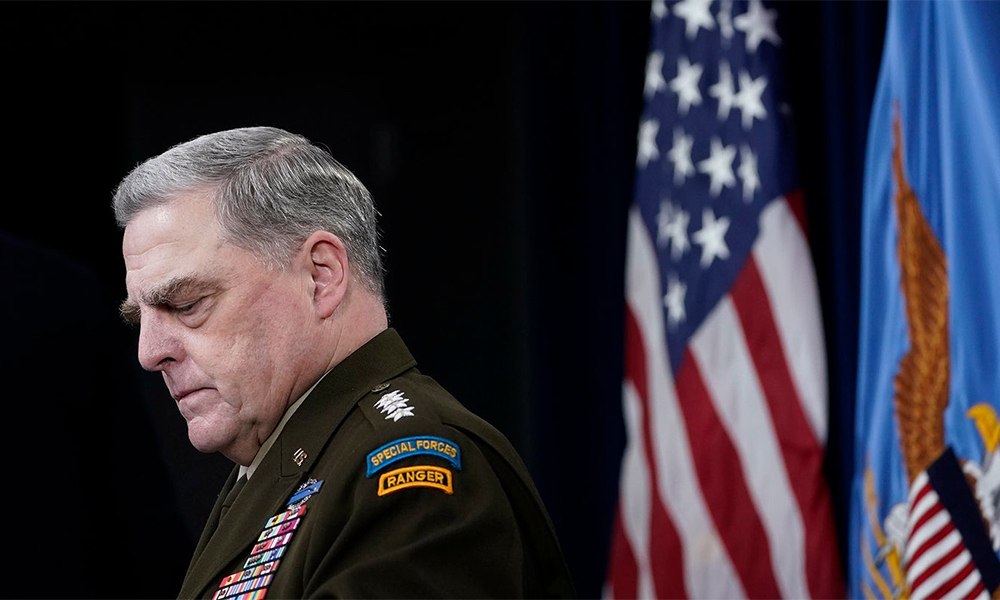
US Army General Mark Milley, the chairman of the Joint Chiefs of Staff, called U.S. efforts in Afghanistan a “tactical success, but a strategic failure.”
The Afghan government and military fell to the Islamic Emirate of Afghanistan (IEA) faster than anyone expected, and that was the failure, he said.
But the noncombatant evacuation operation managed to get more than 124,000 people out of Kabul, as the IEA entered the Afghan capital. The effort involved thousands of service members from around the world, Milley said as cited by the US Department of Defense.
Air Force Major General Corey J. Martin discussed the operation last week with the Defense Writers Group. The keys to the evacuation operation were connectivity and planning, he said.
Planning for the noncombatant evacuation operation began in April, immediately after President Joe Biden said the U.S. effort in Afghanistan would end, the DOD reported. “It started with planning, even though the timing of this event was not known,” Martin said.
Members of U.S. Transportation Command integrated with representatives of the U.S. Central Command and the Joint Staff to plan and execute the retrograde operation of U.S. forces and equipment from Afghanistan, he said.
In August, the IEA offensive against the former Afghan government intensified and provinces were taken. Martin said the speed of the collapse was “a bit of a surprise,” but the Transcom planners were not starting from scratch when the need for evacuation became apparent.
Army Gen. Stephen R. Lyons, the commander of U.S. Transportation Command, had another ace up his sleeve in preparing for the possible operation, Martin said. “General Lyons, as the commander of Transportation Command, has standing authorities that allow for rapid and agile repositioning of mobility forces,” Martin told the reporters.
It allows the command to direct the operational movement of C-17s or KC-135 aircraft quicker, he said.
The speed was needed as the dissolution of the former Afghan forces necessitated the transport of U.S. combat forces to secure the Kabul airport.
The command had to get 6,000 service members and their supplies to the country quickly.
The aircraft and personnel to maintain and fuel them were already in place, and it “allowed the operational movement to be ready to take combat forces, literally almost overnight to Hamid Karzai International (airport) in the face of the advancing Taliban (IEA) to secure that airfield, and allowed for the movement of evacuees out, and then the redeployment of the combat forces,” Martin said.
Connectivity among the Office of the Secretary of Defense, the Joint Staff and the U.S. combatant commands was paramount. Martin said there were constant communications with higher headquarters and with U.S. Central Command, U.S. European Command and U.S. Northern Command.
In addition, there were nationals from many allied and partner countries in Kabul. Martin said at least 30 nations cooperated with the effort, which required constant communications with State Department colleagues, Homeland Security and more.
Martin said the Global Operations Center at Scott Air Force Base, in the U.S. was the “heartbeat” of the command with all elements represented. “At the action officer level, there was integration with Department of State personnel, Customs and Border Patrol, and the FAA [Federal Aviation Administration],” he said.
The overall effort was mammoth and complex, Martin said. It is more than the gray Globemaster C-17s. It was the personnel maintaining the aircraft. It was the refuelers — in the air and on the ground. It was the combat troops on the ground and the airmen who took over the air traffic control in Afghanistan for the operation. It was State Department personnel processing the evacuees.
It was the Air Force and Navy air combat patrols over Kabul, and the service members at intermediate bases in the Middle East and Europe. It was the service members and agency partners in the United States. It was the companies and crews of the Civil Reserve Air Fleet. It was intelligence professionals funneling information to the command.
All these people combined to make the noncombatant evacuation operation from Afghanistan a “tactical success,” Martin said.
Transcom is already looking at the experiences in this effort to see what can be done better, the general said.
Latest News
Tajik foreign minister urges international community to help Afghanistan address its challenges

Tajikistan’s Minister of Foreign Affairs, Sirodjiddin Mukhriddin, has called on the international community to step up assistance for Afghanistan as the country continues to face challenges.
Speaking at a press conference, Mukhriddin said Tajikistan and Afghanistan maintain active coordination between their law enforcement agencies to prevent security incidents along their shared border. He noted that this cooperation remains essential, as the frequency of armed attacks and criminal activity in border regions has increased in recent months.
He said that Afghan authorities had assured Tajikistan they would take necessary measures to stop further incidents and would conduct thorough investigations into any violations.
Mukhriddin emphasized that Tajikistan supports constructive international engagement aimed at improving Afghanistan’s socio-economic conditions. He highlighted that Tajikistan has provided more than 6,000 tons of humanitarian aid to Afghanistan, including food and essential supplies delivered in 2025 to assist communities affected by devastating earthquakes.
The minister also pointed to growing economic cooperation between the two neighbors. Tajikistan has reopened border markets and continues to supply electricity to Afghanistan.
Tajikistan and Afghanistan share a border of more than 1,300 kilometers—over 1,100 km of which consists of waterways and about 190 km of land boundaries.
Meanwhile, Zafar Samad Director of the Drug Control Agency under the President of the Republic of Tajikistan, has said that last year, 17 incidents of clashes happened with drug smugglers along the border with Afghanistan. As a result, two Tajik forces and 10 Afghan nationals have been killed, he added.
Latest News
Baradar: Afghanistan is not an easy target, but a ‘bitter tree’

Mullah Abdul Ghani Baradar, Deputy Prime Minister for Economic Affairs, warned during a graduation ceremony for soldiers of the Ministry of National Defense that the Islamic Emirate will respond decisively to anyone with ill intentions toward Afghanistan.
He said the country is “not an easy target, but a bitter tree that has made the throats of empires bitter and newborns can never digest.”
Baradar also announced that in the coming days, the Islamic Emirate will introduce tax exemptions of one to five years for domestic and foreign investors, based on the level of investment in new sectors. He also said that the process of distribution of land to manufacturers will be accelerated.
Baradar called on countries to engage in political and economic relations according to the values and principles of the Islamic Emirate, emphasizing that energy and resources spent on conflict would be better used to support one another and strengthen common interests.
Latest News
Fourteen former Afghan government forces killed in last three months of 2025: UNAMA
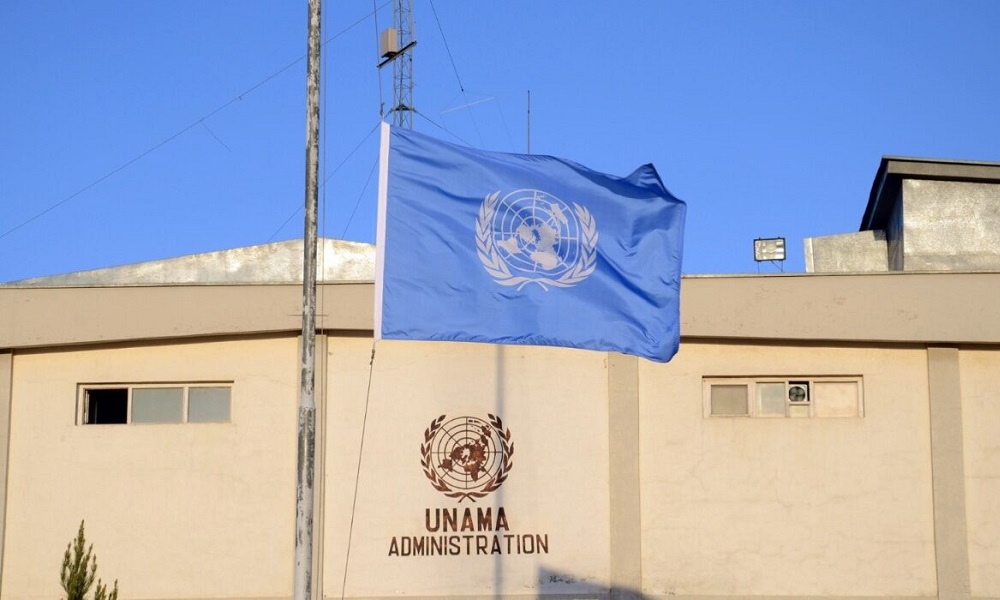
The United Nations Assistance Mission in Afghanistan (UNAMA), in its latest report on the human rights situation in Afghanistan, stated that 14 members of the former Afghan government forces were killed in the last three months of 2025.
The report noted that during this period, there were 28 cases of arbitrary arrest and detention, and at least seven cases of torture and ill-treatment targeting officials and personnel of the former Afghan government.
According to the report, some of the officials and forces who had recently returned to Afghanistan from Iran and Pakistan were among those subjected to extrajudicial killings, arbitrary arrests, and detentions.
The report also highlighted restrictions on women’s work and movement, executions and flogging of individuals, and disruptions to internet and telecommunications services.
-

 Sport5 days ago
Sport5 days agoHosts and heavyweights advance as AFC Futsal Asian Cup reaches semifinals
-

 Latest News4 days ago
Latest News4 days agoTerrorist threat in Afghanistan must be taken seriously, China tells UNSC
-

 Latest News4 days ago
Latest News4 days agoUzbekistan, Pakistan advance Trans-Afghan railway project
-

 Sport4 days ago
Sport4 days agoWinter Olympics finally underway, ATN to broadcast exclusively across Afghanistan
-

 Sport4 days ago
Sport4 days agoAfghanistan beat West Indies in final T20 WC warm-up match
-

 Sport3 days ago
Sport3 days agoIndonesia shock Japan to reach historic AFC Futsal Asian Cup final
-

 Latest News1 day ago
Latest News1 day agoAfghanistan to grant one- to ten-year residency to foreign investors
-
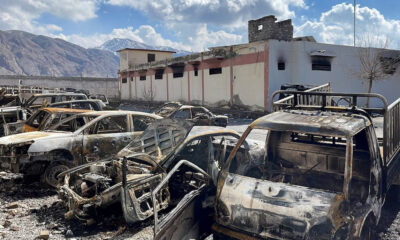
 Regional5 days ago
Regional5 days agoPakistan sends helicopters, drones to end desert standoff; 58 dead




